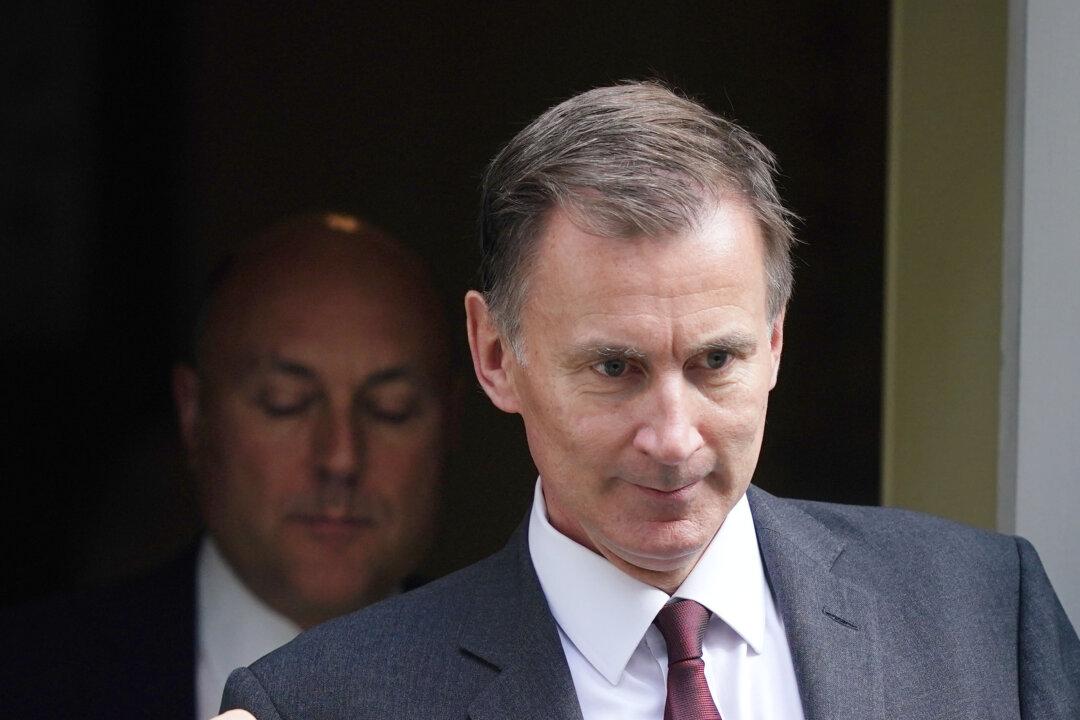There is still no headroom to cut taxes despite the fact public borrowing has been lower than expected, Chancellor of the Exchequer Jeremy Hunt said on Thursday.
Latest figures published by the Office for National Statistics (ONS) on Thursday show the UK’s public borrowing between April and August was £11.4 billion lower than expected thanks to higher-than-expected tax income.





